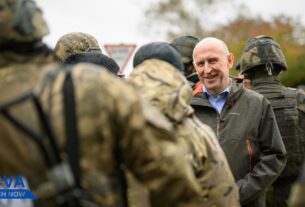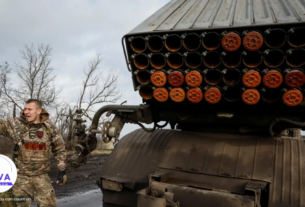As tensions with Iran escalate, the UK has quietly ramped up its military posture in the Middle East, placing the nation on alert in case the United States moves forward with a strike. Prime Minister Keir Starmer convened an emergency Cobra meeting, drawing in ministers, military chiefs, intelligence officials, and the US ambassador to assess potential outcomes and Britain’s role. Central to the discussions was the question of whether Washington would ask permission to use the British-controlled base on Diego Garcia as a launching point for a US strike, perhaps even deploying stealth bombers to hit Iranian nuclear sites such as Fordow.
While no formal request has yet been made, UK officials have prepared various contingency plans, ranging from logistical support, providing supplies and contracts, to defensive backing, including the use of RAF fighter jets and refueling tankers. Importantly, any offensive operation from British soil would require full governmental and possibly parliamentary approval, with the Attorney General stressing that UK involvement must remain strictly defensive. This legal guardrail underscores the difficulty Starmer faces in balancing alliance commitments with national sovereignty and public opinion.
At the same time, military sources indicate that British forces in Cyprus and the broader Middle East region have been put on heightened standby. Concerns over potential retaliation, for instance, missile strikes aimed at UK troops stationed in Iraq or Cyprus, mean that protective rules of engagement have been updated and personnel briefed accordingly . There have also been reports of additional RAF detachments being deployed to the region as a precaution, and some diplomatic families have already been moved out of Israel, though there has been no full-scale evacuation of British citizens.
Politically, the atmosphere has been tense but largely unified. The Conservative Party has indicated it would back any military support deemed necessary by Starmer to prevent Iran from acquiring nuclear weapons, but stresses any action must be judicious, lawful, and narrowly tailored. Starmer’s own position remains cautious: he supports Israel’s right to self-defence but repeatedly emphasizes diplomacy and de-escalation, mindful of the diplomatic consequences of entangling Britain in a broader conflict.
The coming days are likely to be pivotal. If the US moves forward with an attack, Starmer will face an immediate test: whether to stand firm with a defensive role, or step into deeper involvement. How he responds could reshape Britain’s diplomatic standing and defence posture in a rapidly shifting Middle East landscape.




